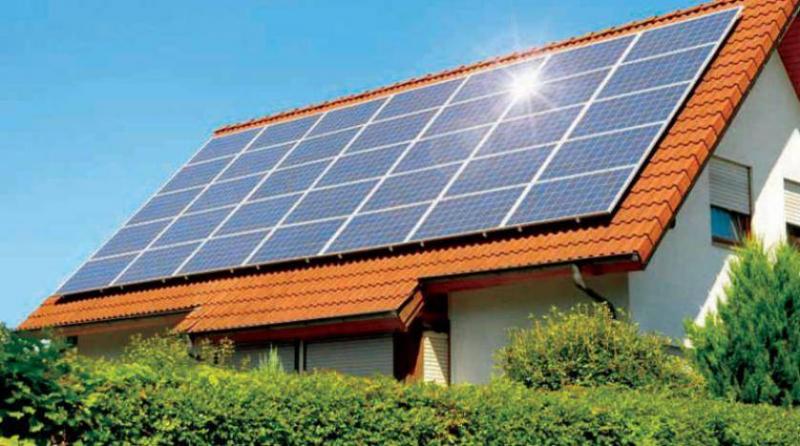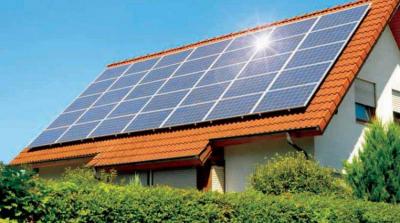Despite the Lebanese government's recent celebration of signing the final agreement for importing Egyptian gas, the wave of official optimism has not reflected on the public level. People feel that they are still far from securing electricity, at least until the end of the current year. This belief is common among a large segment of the Lebanese population, prompting them to search for alternative ways to obtain electricity at the beginning of summer, fearing a repeat of the scenario where the lack of diesel fuel allows generator owners to raise their fees this season.
**New Solutions**
In the capital Beirut, some building residents have begun to agree among themselves to manage common rooftop spaces for installing solar energy systems to secure electricity and share the financial burdens of its costs. This is an attempt to escape the power cuts and the generator system. The idea of installing solar energy systems began as an individual initiative about a year ago, particularly with the interruption of fuel supplies and the rise in diesel prices. However, the idea has started to gain broader traction among many Lebanese.
Although the number of companies supplying solar panels has increased, with weekly licensing requests to the Ministry of Communications reaching 150 new companies, individuals with limited incomes face several challenges, the most significant of which is the high cost of solar panels, starting at around $1,500. This has led some individuals in parts of Beirut's suburbs to rent rooftops for the purpose of installing solar power networks and then connecting them to homes for a monthly subscription, similar to generator subscriptions.
**Roof Rentals**
Hassan Jaber, who rents about four rooftops in a residential building in the southern suburb, states that he aims to install solar power to distribute it to interested residents for monthly subscriptions instead of depending on generator owners. He adds that the idea came after the rise in diesel prices and generator owners demanding payment in dollars instead of Lebanese pounds. Jaber and his friend managed to purchase solar systems and install them, distributing electricity to the building's residents for a monthly fee calculated based on the amperage rate.
Jaber affirms that the pricing is still under consideration by solar system owners, indicating there is no fixed rate yet, but what he charged last month did not exceed 500,000 Lebanese pounds. However, the final price has not yet been determined.
According to him, the pricing will be based on the cost of purchasing the solar systems. Typically, a rooftop needs to light around eight apartments, requiring at least 50 panels, not to mention the batteries, at a cost of no less than $25,000. Consequently, this cost is calculated and distributed with a profit margin to the residents in the first year of subscription, and in the second year, the solar distributors begin to benefit from the profit margins while considering annual maintenance costs.
**Are Prices Regulated?**
If some regions adopt this method, particularly those allowing the establishment of solar farms in villages and mountains, that is, connecting solar power to homes, will we see official intervention to regulate prices by the ministries of economy and energy? This is currently the case with the regulation of electricity generator tariffs.
A source in the Ministry of Energy denies that the ministry will impose any tariffs or price the kilowatt from solar energy or legalize its operation. The source attributed this to the Lebanese authorities' aim to support citizens through subsidized loans for buying solar panels, a step that the Central Bank of Lebanon has recently initiated. As a result, it is believed that the idea of establishing solar farms and distributing them to people for fixed monthly amounts will be agreed upon between residents and farm owners.
According to the source, the shift to solar energy will be a goal for the ministry in the coming years. Thus, the idea of financing solar energy is likely to expand, making it possible for a significant number of Lebanese to install it, especially since the loans are in Lebanese pounds.
**A Welcoming Idea**
Mrs. Mariam Khalifa, a resident of the Ghaziyeh area in southern Lebanon, welcomed the idea of relying on solar energy instead of depending on generator owners. In her area, some expatriates are seeking to fund a project to establish a solar farm aimed at lighting up the region, to be supervised by the municipality. The project, according to her, could help in transitioning to clean energy, and there may not be high fees imposed on the residents, but rather minimal charges for maintenance work.




